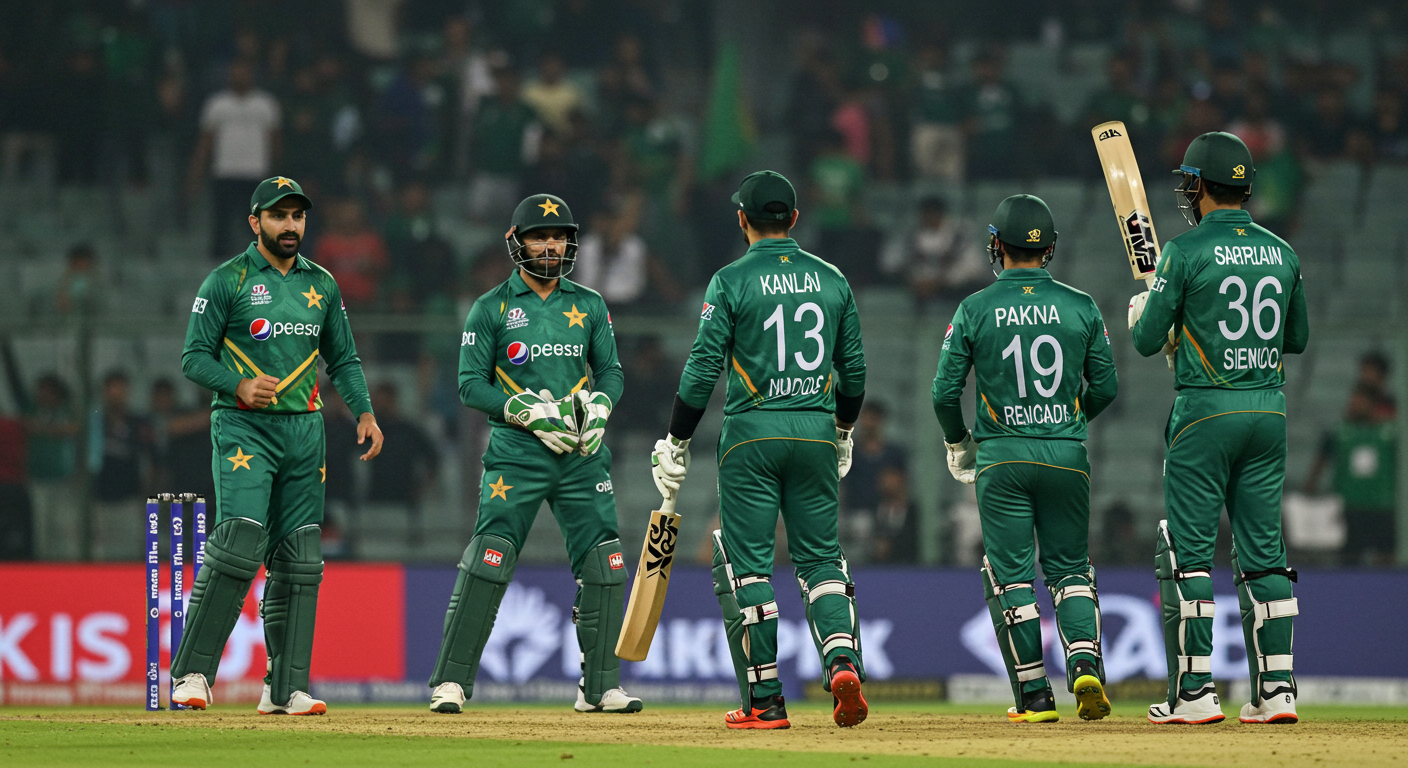Pakistan Cricket Team’s Best Short-Form Performances: A Deep Dive

Pakistan Cricket Team’s Best Short-Form Performances: A Deep Dive
Pakistan cricket has a rich and often captivating history, filled with both triumphs and heart-wrenching losses. While Test matches and ODI series are monumental, Pakistan’s short-format prowess has often delivered electrifying moments and cemented their place in the global cricketing landscape. This article delves deep into the team’s most impactful and memorable short-form campaigns, examining the key factors behind their success, analyzing individual performances, and, importantly, exploring the fluctuating trends within their short-format approach.
The Rise of a Limited-Overs Powerhouse
Pakistan’s journey to becoming a formidable force in limited-overs cricket has been a fascinating one. From early struggles to significant victories, the team’s evolution has been driven by a potent blend of talent, strategic innovations, and, undeniably, a deep-seated passion for the game. It’s a story of consistent evolution and adaptation to the ever-changing demands of international short-form cricket.
Key Moments and Turning Points
Throughout their short-format history, the Pakistan team has experienced several pivotal moments. One can pinpoint specific tournaments, crucial matches, and exceptional individual performances that have significantly impacted their overall standing in the sport.
2009 ICC World Twenty20 Quarter-Final Win over England: This victory showcased a potent blend of aggression and athleticism, setting the stage for Pakistan’s future in the format.
The dynamic interplay between their batters and bowlers, as well as the team’s overall determination, propelled them to success.
2017 Champions Trophy: Pakistan’s performance in the 2017 Champions Trophy is noteworthy, particularly given the team’s ability to bounce back from early setbacks. The players’ resilience and strategic approach, coupled with the inspiring leadership of some individuals, were critical components of this period.
A series of close and competitive encounters showcased the team’s growth, and this tournament underscored the importance of consistent performance and tactical acumen in short-format cricket.
Analyzing the Ingredients of Success
What are the key elements that have contributed to Pakistan’s triumphs in short-format cricket? The analysis extends beyond mere statistics to explore the mental fortitude, tactical approaches, and overall team dynamic.
1. Consistent Batting Prowess: Pakistan’s short-form prowess relies on the ability to quickly adapt to different conditions. Some of the most prolific batters in this format have consistently provided crucial innings, demonstrating adaptability and an ability to capitalize on opportunities.
2. Exceptional Bowling Lineups: From the formidable pace attacks to their spin options, Pakistan has frequently fielded world-class bowling units. Exceptional skill and tactical variations have been instrumental in disrupting opponents’ batting plans.
3. Strategic Depth: Pakistan has shown an impressive ability to adjust their strategies throughout a match, often employing effective tactical changes to gain an upper hand. This adaptability is frequently critical in tight match scenarios.
4. Team Spirit: Undeniably, a supportive and cohesive team environment plays a vital role. The unity amongst players and the desire to perform as a collective entity are critical in short-format cricket where moments of brilliance are often the difference between success and failure.
Individual Brilliance and Key Players
Several players have stood out in Pakistan’s short-form campaigns. Their contributions have been instrumental in crucial victories and have undoubtedly shaped the narrative around the team’s success.
Mohammad Hafeez, Shahid Afridi, and Shoaib Malik are notable examples of Pakistan’s dynamic and powerful batting and all-round playing styles that have been instrumental in many victories.
Similarly, exceptional fast bowlers like Imran Khan, Waqar Younis, and others have often been pivotal in securing victory and have been instrumental in influencing the outcome of matches. The contribution of their strategic captains in shaping the overall team strategy has significantly shaped their victories.
Looking Ahead: Challenges and Opportunities
While Pakistan has showcased remarkable feats in short-form cricket, continuous improvement remains essential for sustained success. Addressing certain challenges and capitalizing on opportunities are key to their future performance.
1. Consistency in Performances: Maintaining consistent performances across different tournaments is critical. Addressing fluctuations in form and finding ways to consistently elevate performance is a cornerstone of future success.
2. Adaptability: Modern cricket demands continuous adaptation. The Pakistan team must remain adaptable and responsive to changing playing styles, conditions, and opponent strategies.
3. Development of Young Talent: Nurturing and developing young talent is essential for a team’s long-term success. This aspect is vital in bolstering the strength and depth of the playing pool and ensuring that the team’s legacy endures.
4. Tactical Depth: Continued evolution in coaching and tactical thinking is crucial to maintaining an edge against formidable international rivals.
Conclusion: A Testament to Passion and Potential
Pakistan’s achievements in short-form cricket stand as a testament to the passion and determination of its players, coaches, and support staff. By diligently focusing on consistency, adaptability, and development of emerging talent, Pakistan can undoubtedly achieve greater feats in the future. The team’s rich history, coupled with the evident potential, promises exciting and significant contributions to the global cricket arena.
This deep dive into Pakistan’s best short-format performances underscores not just the achievements but the ongoing evolution and dynamism of the team’s approach. It provides insights into the elements of success, the significant contributions of key individuals, and, ultimately, the ever-evolving nature of international cricket.